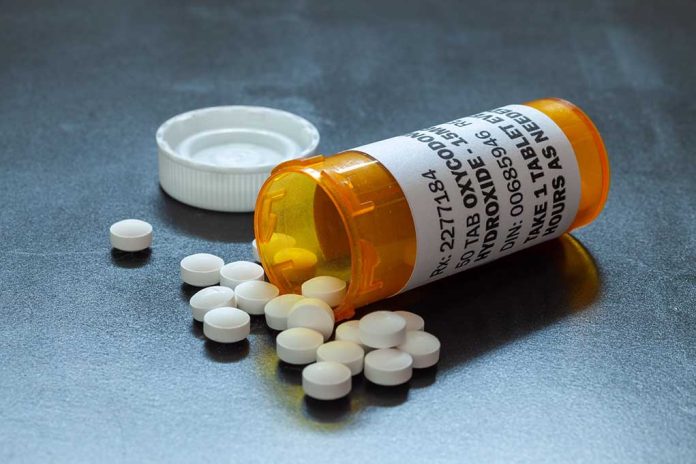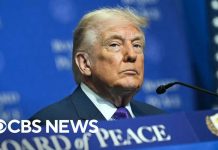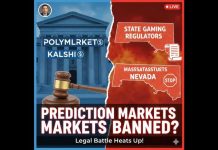
President Trump’s executive orders could save Americans billions on prescription drugs by finally cutting through outdated FDA red tape for biosimilar medications that have already been safely used in Europe for years.
Key Takeaways
- Biosimilars have already saved Americans $36 billion and provided over 495 million days of patient therapy since 2015, despite regulatory hurdles.
- Current FDA approval processes for biosimilars include unnecessary clinical trials that add $100-300 million in development costs without improving safety or efficacy.
- Only 10% of 118 biologic medications facing patent expiry in the next decade have biosimilar alternatives in development due to regulatory barriers.
- President Trump’s executive orders in 2025 specifically target accelerating biosimilar approvals to reduce prescription drug costs for Americans.
- Streamlining biosimilar approval would align U.S. standards with Europe’s more efficient regulatory system, bringing affordable medications to market faster.
Trump’s Executive Orders Target Expensive Prescription Drugs
President Trump has taken decisive action to tackle America’s prescription drug pricing crisis with two significant executive orders signed in 2025. The first order, titled “Lowering Drug Prices by Once Again Putting Americans First,” addresses twelve critical areas related to drug pricing reform. The second order, “Delivering Most-Favored Nation Prescription Drug Pricing to American Patients,” focuses on drug importation and eliminating anti-competitive practices that have allowed pharmaceutical companies to maintain artificially high prices in the American market while selling the same medications at lower costs abroad.
These executive orders specifically direct the FDA to accelerate the approval process for generic drugs and biosimilars – medications that function almost identically to expensive biologic drugs but at a fraction of the cost. The orders represent a significant shift in regulatory policy, prioritizing American patients over pharmaceutical company profits by removing unnecessary barriers that have prevented more affordable alternatives from reaching the market. This approach aligns with President Trump’s America First policies by ensuring Americans no longer subsidize lower drug prices in other countries.
Are you tired of paying too much for medications?
I just introduced a bill to make your prescription drugs more affordable: The Biosimilar Red Tape Elimination Act.
“Biosimilars” – generic alternatives to name-brand medications – have the potential to significantly reduce the…
— Mike Lee (@SenMikeLee) June 9, 2025
Biosimilars: The Untapped Cost-Saving Opportunity
Biosimilars represent one of the most promising opportunities to reduce America’s skyrocketing prescription drug costs. Unlike traditional generic medications, biosimilars are complex versions of biologic drugs – medications made from living organisms that treat serious conditions like cancer, rheumatoid arthritis, and multiple sclerosis. Since the FDA approved the first biosimilar in 2015, these medications have generated approximately $36 billion in savings and provided over 495 million days of patient therapy. However, the current regulatory framework has prevented Americans from realizing the full potential of these cost-saving alternatives.
“Imagine a world where cutting-edge medicines developed to treat complex conditions like cancer and autoimmune diseases reach patients faster and at a lower cost,” said the Biosimilars Council.
The current development and regulatory process for biosimilars in America is outdated and fails to align with scientific advancements, creating unnecessary costs and delays. The most egregious example is the FDA’s continued insistence on comparative clinical efficacy studies – extensive and expensive clinical trials that often duplicate research already completed and accepted by regulatory agencies in other developed nations. These redundant studies can account for half of the total development cost of a biosimilar, which ranges from $100-300 million, without significantly improving quality, safety, or efficacy.
🌐 **Health Tech Policy Roundup: April-August 2024** 🌐
– **FDA Approvals**: April saw the FDA greenlight two biosimilars, aiming to reduce healthcare costs by offering alternatives to expensive biologics.
– **Cybersecurity**: A significant cyberattack on Change Healthcare…
— Andrew G. Huff, PhD, MS (@AGHuff) August 18, 2024
The “Biosimilar Void” Crisis
The high development costs and regulatory hurdles have created what experts call a “biosimilar void” in America. Despite the potential for enormous cost savings, pharmaceutical companies are reluctant to invest in developing biosimilars due to the prohibitive regulatory requirements. This market failure is evident in the alarming statistic that only 10% of the 118 biologic medications facing patent expiration over the next decade have biosimilar alternatives in development. This represents a critical missed opportunity to provide Americans with access to affordable versions of these life-saving medications.
“Biosimilar streamlining isn’t just a bureaucratic fix or a regulatory refinement, it is a critical solution to address the ‘biosimilar void,’ bringing high-quality, affordable medicines to market more quickly and giving patients better, faster access to the treatments they need,” said the Biosimilars Council.
President Trump’s executive orders directly address this crisis by instructing the FDA to modernize its approach to biosimilar approval. Instead of requiring redundant clinical trials that add enormous costs without improving safety, the FDA will be directed to follow the more streamlined approach used by regulatory agencies in Europe and other developed nations. These agencies have successfully relied on advanced analytical methods and targeted pharmacokinetic studies to confirm biosimilarity without mandating extensive clinical trials when the evidence already establishes safety and efficacy.
Congressional Support for Regulatory Reform
President Trump’s executive actions are being reinforced by legislative efforts in Congress. Senators Rand Paul and Mike Lee have emerged as champions for biosimilar streamlining, introducing legislation that would align U.S. approval processes with the more efficient standards used successfully in Europe. The proposed bills would eliminate redundant requirements and accelerate the approval of biosimilars without compromising safety or efficacy, enabling Americans to access affordable alternatives to expensive biologic medications much sooner than under the current system.
“Sec. 10. Increasing Prescription Drug Importation to Lower Prices. Within 90 days of the date of this order, the Secretary, through the Commissioner of Food and Drugs, shall take steps to streamline and improve the Importation Program under section 804 of the Federal Food, Drug, and Cosmetic Act to make it easier for States to obtain approval without sacrificing safety or quality,” said President Trump.
The combined effect of President Trump’s executive orders and congressional action represents a powerful opportunity to transform the biosimilar landscape in America. By modernizing the regulatory framework to eliminate unnecessary hurdles while maintaining stringent safety standards, the administration is addressing one of the root causes of high prescription drug prices. This approach will increase competition in the pharmaceutical market, provide Americans with more affordable treatment options, and reduce the financial burden on patients, insurers, and government healthcare programs without compromising quality of care.









